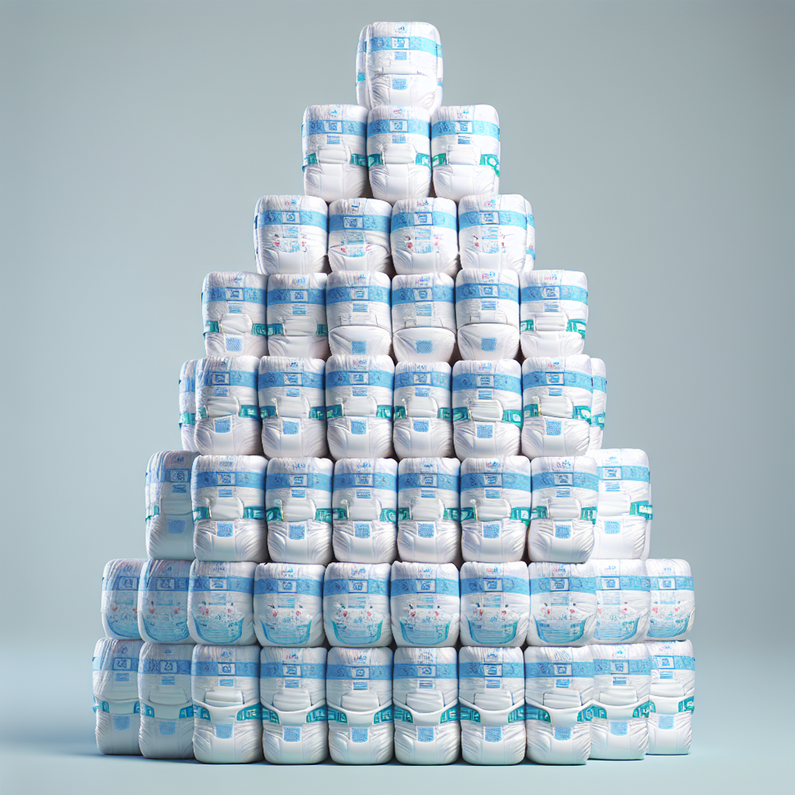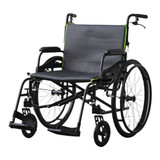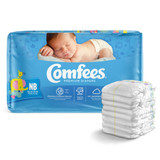How Many Diapers Do I Need? A Guide to Stocking Up
Preparing for a new baby involves planning for many essentials, and one crucial item on every parent's list is diapers. Ensuring you have enough diapers can save you from late-night store runs and unnecessary stress. This Guide to Stocking Up on diapers will help you understand how many diapers you need at different stages of your baby's development.
Factors to Consider When Stocking Up on Diapers
Understanding the Different Diaper Sizes
Diapers come in various sizes, each designed to fit babies at different stages of their growth. The primary sizes include:
- Newborn (NB): Suitable for babies up to 10 lbs
- Size 1: Fits babies weighing 8-14 lbs
- Size 2: Intended for babies weighing 12-18 lbs
- Size 3: Designed for babies weighing 16-28 lbs
Importance of Considering the Baby's Weight and Age When Choosing Diaper Sizes
Selecting the appropriate diaper size is crucial for ensuring your baby's comfort and preventing leaks. Key factors to consider:
- Weight: Babies grow at different rates, so always check the weight range specified on the diaper packaging.
- Age: Although age can be a rough guide, weight is a more reliable factor.
How Many Diapers Does a Newborn Need?
Newborn diapers are an essential item for any parent. Understanding how many diapers you'll need can help ensure you're prepared.
Average Number of Diapers Used by Newborns per Day
Newborns typically go through 8-12 diapers a day. This high frequency is due to their small bladders and frequent feedings.
Frequency of Diaper Changes for Newborns
Babies at this stage often require diaper changes:
- After every feeding
- When they wake up from naps
- Immediately after they soil the diaper
Estimating the Number of Diapers Needed per Week or Month for a Newborn
To estimate your weekly or monthly needs:
- Daily Usage: 8-12 diapers
- Weekly Usage: 56-84 diapers (8 x 7 days = 56, 12 x 7 days = 84)
- Monthly Usage: Approximately 240-360 diapers (based on a 30-day month)
For example, if your newborn uses about 10 diapers per day, you’d need around 300 diapers per month.
Having an idea of these numbers helps in planning and stocking up appropriately.
Sizing Up: When to Transition to Size 1 Diapers
Recognizing the right time to transition your baby to size 1 diapers is crucial for their comfort and hygiene. Here are some important aspects to consider:
Signs that the Baby is Ready for Size 1 Diapers
- Frequent Leaks or Blowouts: If you're noticing more leaks or blowouts, it might be a sign that the current diaper size is too small.
- Red Marks on Skin: Tight-fitting diapers often leave red marks around the baby's legs and waist.
- Difficulty Closing the Diaper: Struggling to fasten the tabs comfortably indicates it's time for a larger size.
Understanding the Weight Range for Size 1 Diapers
- Typical Weight Range: Size 1 diapers generally cater to babies weighing between 8-14 pounds (3.6-6.4 kg).
- Check Packaging Labels: Always refer to the weight guidelines provided by the diaper brand, as these can vary slightly.
Importance of Avoiding Premature Sizing Up
- Comfort and Fit: Diapers that are too large can lead to gaps, causing leaks and discomfort.
- Skin Protection: Properly fitting diapers help prevent rashes and skin irritations by ensuring moisture is absorbed efficiently.
- Waste Reduction: Using diapers that fit well minimizes waste and ensures you get full use of each diaper pack.
Keeping an eye on these indicators helps ensure your baby stays comfortable and dry as they grow.
Determining Diaper Needs Based on Age and Weight
When it comes to stocking up on diapers, understanding the relationship between your baby's age, weight, and diaper size is crucial.
Different Diaper Sizes Available Based on the Baby's Weight and Age
Diaper sizes are typically categorized based on the baby's weight. Here's a quick rundown:
- Newborn (up to 10 lbs)
- Size 1 (8-14 lbs)
- Size 2 (12-18 lbs)
- Size 3 (16-28 lbs)
- Size 4 (22-37 lbs)
- Size 5 (27+ lbs)
- Size 6 (35+ lbs)
Guidelines for Determining the Appropriate Diaper Size Based on Weight Ranges
Choosing the right diaper size involves more than just checking weight ranges. It's essential to monitor how well the diaper fits your baby. Here are some tips:
- Check for red marks: If you notice red marks around your baby's thighs or waist, it might be time to size up.
- Leaks and blowouts: Frequent leaks can indicate that the current diaper size is too small.
- Comfort: The diaper should fit snugly but not too tight. If you can comfortably slide two fingers under the waistband, it's a good fit.
Considering the Baby's Growth Rate and Developmental Stage When Stocking Up on Diapers
Babies grow quickly, so it's wise to consider their growth rate when buying diapers in bulk.
- Growth spurts: Babies often have growth spurts, which means they might outgrow their current diaper size faster than expected.
- Developmental milestones: As babies become more active (crawling, walking), they may need a more secure fit to prevent leaks.
Keeping track of your baby’s growth patterns helps ensure you have the right size diapers at each stage. Adjust your stockpile accordingly to avoid having an excess of too-small diapers.
How Many Diapers Do I Need Per Day?
Understanding how many diapers a day you will need can help you plan and manage your diaper stock effectively.
Average Number of Daily Diaper Changes at Different Stages
- Newborns: Typically, newborns require around 10-12 diaper changes per day. Their small bladders and frequent feedings contribute to this high usage.
- Infants (1-5 months): As babies grow, the number of daily diaper changes usually decreases to about 8-10 times a day.
- Older Infants (6-12 months): By this stage, expect around 6-8 diaper changes daily as their bladder capacity increases and feeding patterns stabilize.
Factors that Can Affect the Frequency of Diaper Changes
Several factors can influence how often you need to change your baby's diaper:
- Feeding Patterns: Breastfed babies might produce more frequent stools than formula-fed babies, leading to more frequent changes.
- Age: Younger babies generally need more frequent changes compared to older infants.
- Health: Issues like diarrhea or urinary tract infections can increase the number of diapers needed.
Tips for Managing Excessive or Insufficient Diaper Usage
To manage diaper usage efficiently:
- Track Changes: Keep a log of how many diapers you use daily for a week to get an average.
- Stock Strategically: Always have extra diapers on hand but avoid overstocking sizes your baby might soon outgrow.
- Evaluate Needs Regularly: Babies grow quickly, so reassess your diaper needs periodically based on your baby's growth and development stage.
Understanding these aspects can help ensure you are well-prepared without overspending or running out unexpectedly.
The Cost of Stocking Up on Diapers
Average Cost of Diapers per Month
Parents can expect to spend a significant amount on diapers each month. On average:
- Newborns: Around 10-12 diapers per day.
- Infants: Approximately 8-10 diapers per day.
This translates to roughly 300 diapers per month. With a price range of $0.20 to $0.30 per diaper, monthly costs can be around $60-$90.
Calculating the Total Cost of Stocking Up on Diapers
To understand the total cost of stocking up on diapers, consider:
- Estimate Usage: Calculate the number of diapers needed for each stage (newborn, infant).
- Price Per Diaper: Use the average cost of $0.25 per diaper.
- Duration: Multiply by the duration in months for each stage.
For example:
- Newborns (first 3 months): 300 diapers/month x 3 months x $0.25 = $225
- Infants (next 9 months): 270 diapers/month x 9 months x $0.25 = $607.50
Combined, the first year could total around $832.50.
Budgeting Tips for Minimizing Diaper Expenses
Saving on diaper expenses is possible with these strategies:
- Coupons and Discounts: Look for deals in stores and online.
- Bulk Purchases: Buying larger packs often reduces the cost per diaper.
- Subscription Services: Many retailers offer discounts for regular deliveries.
- Consider Cloth Diapers: Although an initial investment, they can save money over time.
By planning and utilizing these tips, managing the cost of stocking up on diapers becomes more feasible.
Tips for Saving Money on Diapers
Parents often seek ways to save money on diapers due to their significant cost. Here are some effective strategies:
Using Coupons and Discounts to Save Money on Diapers
- Coupons: Many diaper brands offer coupons through their websites, apps, or mailing lists.
- Discounts: Retailers frequently have sales and special discounts on diapers. Look out for these deals in-store and online.
Buying in Bulk or Subscribing to Diaper Delivery Services
- Bulk Purchases: Buying diapers in larger quantities usually reduces the cost per diaper. Warehouse stores like Costco or Sam's Club often have bulk options.
- Subscription Services: Companies like Amazon offer diaper subscription services that deliver diapers regularly at a discounted rate.
Considering Cloth Diapers as a Cost-Saving Alternative
- Reusable Option: Cloth diapers can be washed and reused, significantly cutting down long-term costs.
- Initial Investment: Though there's an upfront investment, cloth diapers can be cheaper over time compared to disposable ones.
Adopting these strategies can help manage the expenses associated with diapering your baby.
Conclusion
Planning ahead for your baby's diaper needs is essential. Use this comprehensive diaper stocking guide to ensure you are well-prepared. Consider the factors discussed such as diaper sizes, baby's weight, and age to determine the appropriate number of diapers. This guide will help you stock up efficiently and save money along the way.
Remember these key points:
- Plan ahead
- Use the guide as a resource
- Stock up wisely
Being prepared means less stress and more time enjoying precious moments with your little one.
FAQs (Frequently Asked Questions)
How many diapers do I need?
The article provides a guide to stocking up on diapers, taking into consideration factors such as the baby's age, weight, and the frequency of diaper changes.
What factors should I consider when stocking up on diapers?
When stocking up on diapers, it's important to consider the different diaper sizes available, the baby's weight and age, and to use a diaper size chart as a reference guide.
How many diapers does a newborn need?
Newborns typically use a certain number of diapers per day, and it's important to estimate the number of diapers needed per week or month based on their frequency of diaper changes.
When should I transition to size 1 diapers?
It's important to watch for signs that the baby is ready for size 1 diapers and to understand the weight range for size 1 diapers in order to avoid premature sizing up.
How can I determine diaper needs based on age and weight?
Different diaper sizes are available based on the baby's weight and age, so it's essential to follow guidelines for determining the appropriate diaper size based on weight ranges and considering the baby's growth rate and developmental stage.
How many diapers do I need per day?
The average number of daily diaper changes varies at different stages, such as for newborns and infants. Factors such as feeding patterns and age can affect the frequency of diaper changes, so it's important to manage excessive or insufficient diaper usage accordingly.
What is the cost of stocking up on diapers?
The article covers the average cost of diapers per month and provides tips for calculating the total cost of stocking up on diapers, along with budgeting tips for minimizing diaper expenses.
What are some tips for saving money on diapers?
The article suggests using coupons and discounts, buying in bulk or subscribing to diaper delivery services, as well as considering cloth diapers as a cost-saving alternative.
What is the conclusion of the article?
The conclusion encourages planning ahead for diaper needs and using the guide as a resource for stocking up on diapers.
Recent Posts
-
A Comprehensive Guide to Manual Wheelchairs and Transport Wheelchairs
When navigating the world of mobility aids, understanding the distinctions between manual wheelchair …Sep 17th 2024 -
8 Tips To Make Travel In A Wheelchair By Plane Easier
Air travel accessibility is crucial for ensuring that everyone, regardless of physical ability, can …Sep 12th 2024 -
Pros and Cons of Disposable Diapers
The debate between disposable and cloth diapers is a common topic among new parents. Each option has …Aug 21st 2024



